
Neneh Cherry
| Use attributes for filter ! | |
| Gender | Female |
|---|---|
| Age | 60 |
| Date of birth | March 10,1964 |
| Zodiac sign | Pisces |
| Born | Stockholm |
| Sweden | |
| Siblings | Titiyo |
| Christian Jon Cherry | |
| David Ornette Cherry | |
| Cherno Jah | |
| Jan Cherry | |
| Eagle-Eye Cherry | |
| Height | 173 (cm) |
| Job | Disc jockey |
| Actor | |
| Broadcaster | |
| Singer-songwriter | |
| Rapper | |
| Movies/Shows | Stockholm, My Love |
| The Very Best of Cher: The Video Hits Collection | |
| 1 Giant Leap | |
| Mega Hits | |
| Red Hot and Blue | |
| Slaves of New York | |
| Neneh and Andi Dish it Up | |
| Fonko | |
| Awards | MTV Europe Music Award for Best Song |
| Grammis Award for Jazz of the Year | |
| Brit Award for Best International Solo Artist | |
| Danish Music Award for International Hit of the Year | |
| Grammis Award for Electro/Dance of the Year | |
| Listen artist | www.youtube.com |
| Spouse | Cameron McVey |
| Bruce Smith | |
| Children | Mabel |
| Tyson McVey | |
| Naima Karlsson | |
| Parents | Moki Cherry |
| Ahmadu Jah | |
| Songs | 1994 |
| List | 7 SecondsThe Guide (Wommat) · 1994 |
| 1994 | |
| 1989 | |
| 1983 | |
| Albums | Raw Like Sushi |
| Man | |
| Broken Politics | |
| Homebrew | |
| Date of Reg. | |
| Date of Upd. | |
| ID | 419043 |
Neneh Cherry Life story
Neneh Mariann Karlsson, better known as Neneh Cherry, is a Swedish singer-songwriter, rapper, occasional DJ and broadcaster. Her musical career started in London in the early 1980s, where she performed in a number of punk and post-punk bands in her youth, including the Slits and Rip Rig + Panic.
Now That's What I Call Music turns 40: Forty facts about the compilation giant
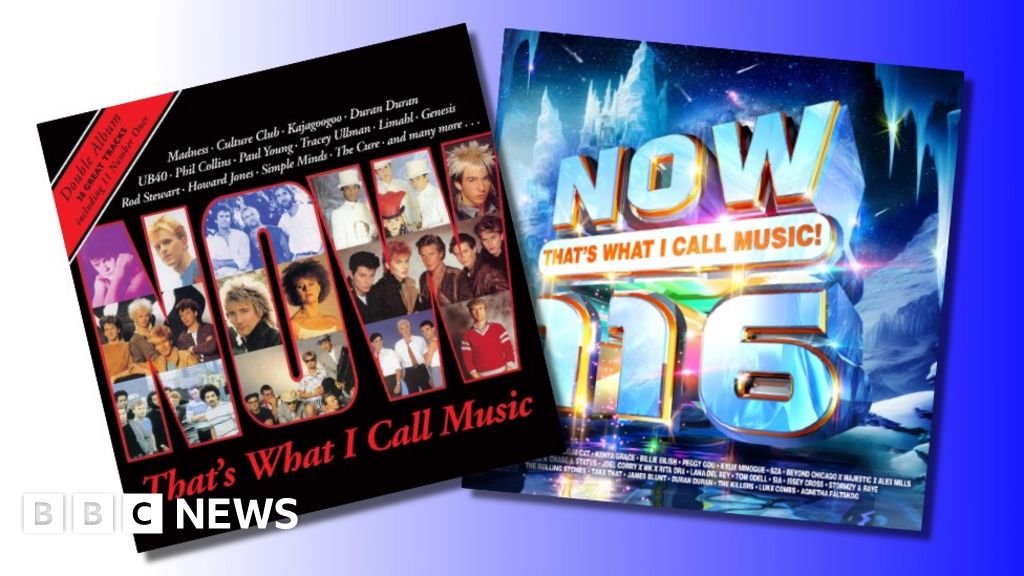
... Neneh Cherry and her daughter Mabel have both appeared on the series; as have Bob Marley, his son Damian and grandson Skip...
Hip-hop: Eve on five female MCs who changed the genre
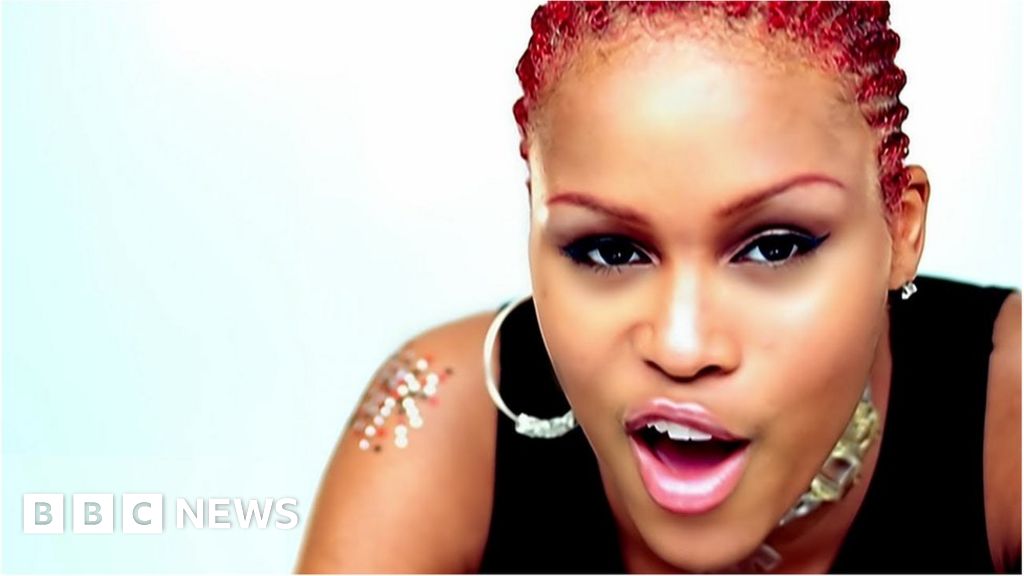
... Narrated by Neneh Cherry, First Ladies of Hip-Hop acknowledges the contributions of artists like Queen Latifah, MC Lyte, Rah Digga and Lil Kim, while highlighting a new generation - Ice Spice, Little Simz, Doja Cat - at the forefront of rap innovation...
Sound Of 2023: Nia Archives is ushering in a new era of jungle
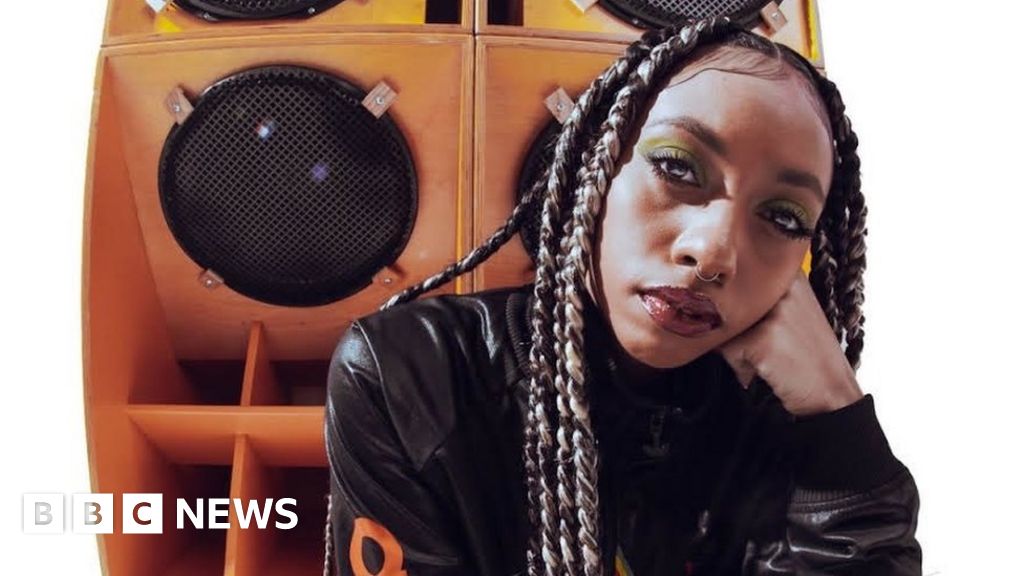
... She followed it up with last year s Forbidden Feelingz EP, which delved deeper into her musical obsessions, sampling prominent British rappers like Neneh Cherry and Roots Manuva, while bringing her silky, soulful vocals further into the foreground...
An incomplete history of pop on BBC television
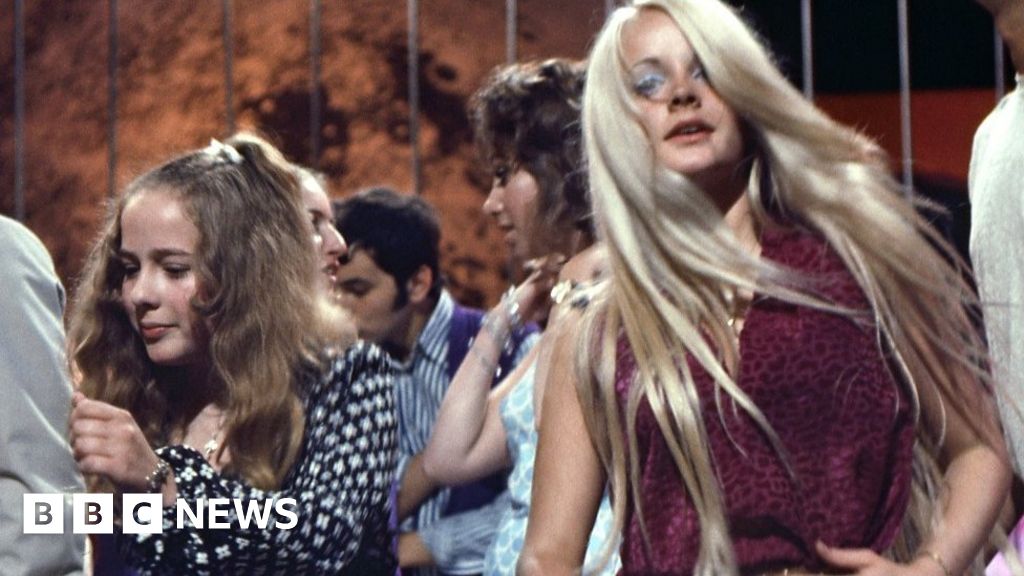
... Memorable moments include Neneh Cherry performing Buffalo Stance while seven months pregnant; Nirvana sabotaging their performance of Smells Like Teen Spirit; and David Bowie suggestively draping his arm around Mick Ronson during Starman - a watershed moment in pop that introduced a generation to androgyny...
British until 2020: The real winners and losers
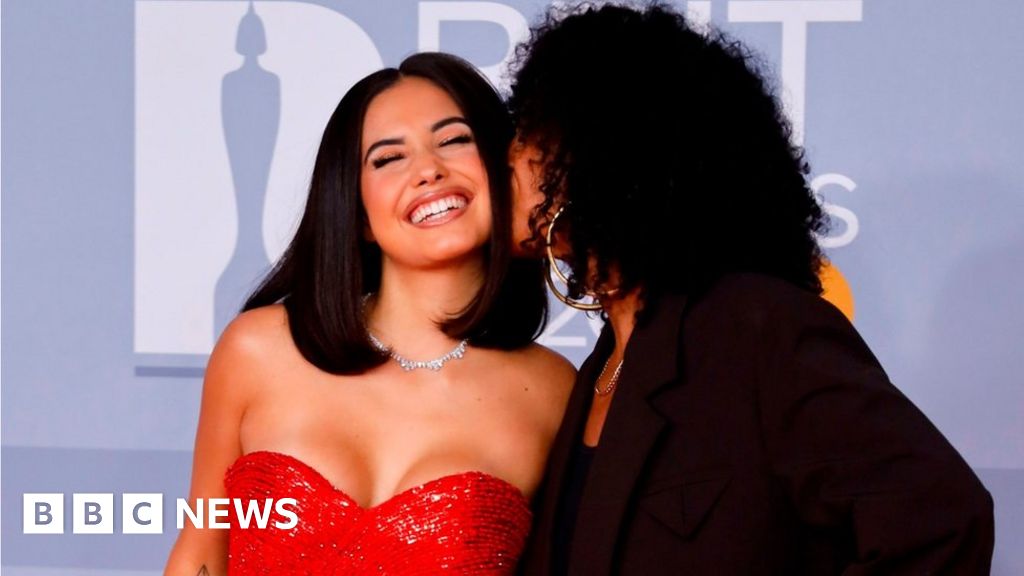
... the Most successful baton handover: Mabel and Neneh Cherry When Mabel bagged the Brit award for best British female, the first person to congratulate her was her mother, the former Brit Award-winner Neneh Cherry...
British until 2020: Dave wins and calls PM 'racist'
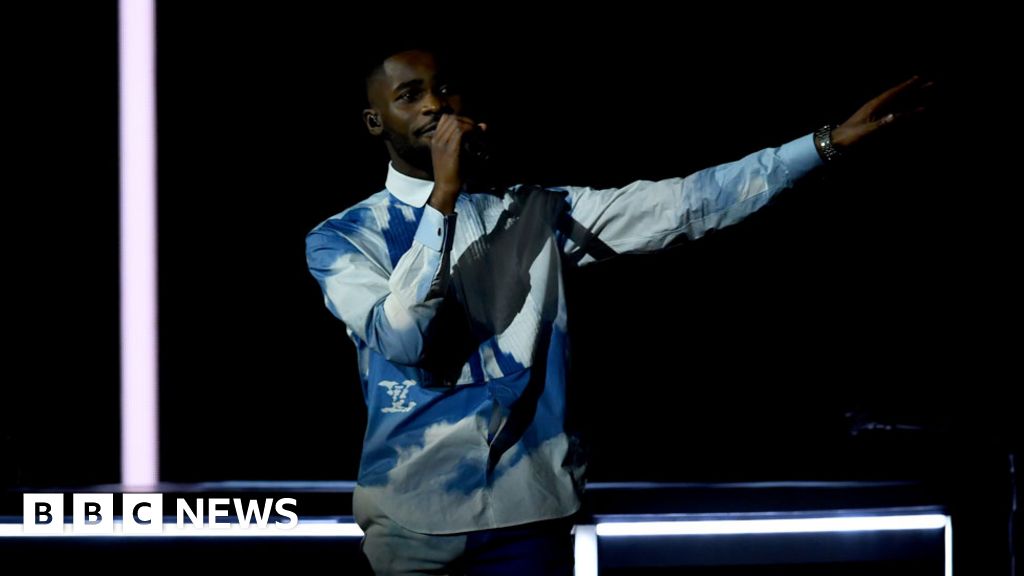
......
Lewis Capaldi and Dave lead Brit Award nominations
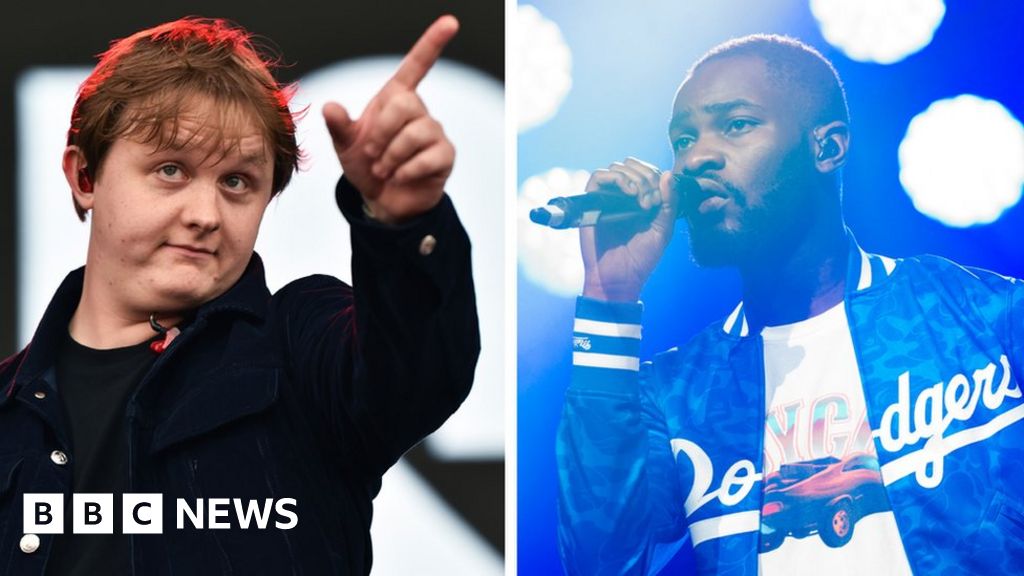
... Mabel before 2018 Mabel, daughter of Neneh Cherry and Massive Attack producer Cameron McVey, was nominated for the Brits Critics Choice award of the year is the most-nominated artist, what is the popularity of their single Don t Call Me Up, which charted in the top 10 in the whole of Europe and attracted viral attention in the United States...
News Daily: Royals 'hurt' Harry ' choice and BBC Sound of 2020-the winners
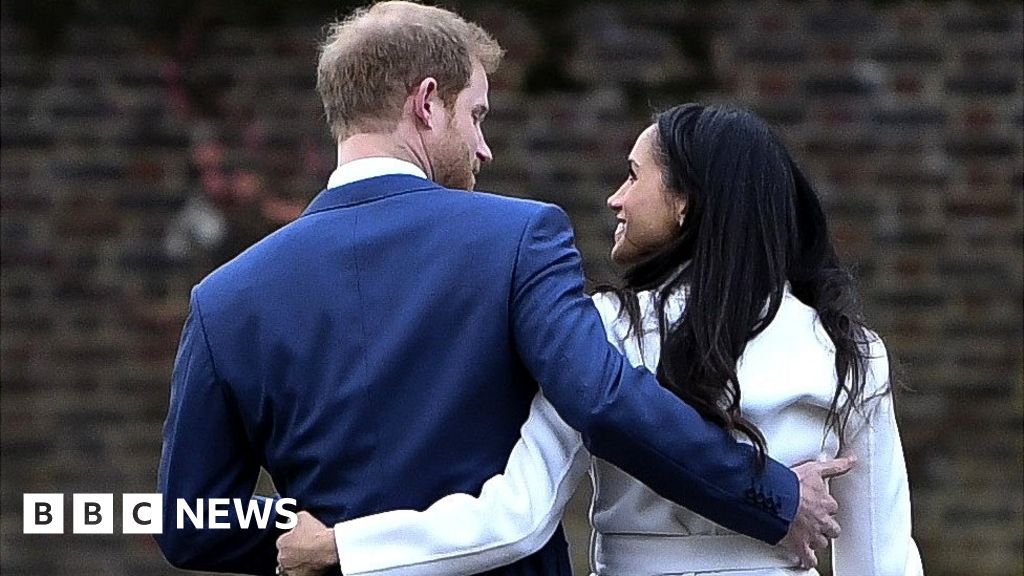
... She was soon picked up by record companies and went to assist, Janelle Monáe, Neneh Cherry and Michael Kiwanuka on tour...
An incomplete history of pop on BBC television
By Mark SavageBBC Music Correspondent
" It's Thursday night, it's seven o'clock, it's Top Of The Pops! "
To pop fans of a certain age, that phrase is dopamine rush. It means homework can be forgotten, the weekend is tantalisingly close, and pop music is about to happen in our drab 1980s living room.
If you're lucky, you might even catch a glimpse of your childhood crush, Cheryl from Bucks Fizz, who seemed like she'd definitely want to visit your house for a game of Connect 4 (OK, maybe that part was just me).
Top Of The Pops ruled the roost for 42 years, introducing the UK to Marc Bolan, David Bowie, Madonna, The Stone Roses and the Spice Girls, in an era when pop music was still scarce and exotic.
But TOTP, as no-one ever called it outside of the print media, wasn't the BBC's only dalliance with the charts.
In fact, more than 70 different pop and rock shows have elbowed their way into the schedules since the BBC's inception 100 years ago.
Here's a tour of the highlights and low points.
The Countdown to Top Of The PopsIn the BBC's early years, popular music was squeezed into variety shows and magazine programmes, with classical concerts and opera forming the bulk of the corporation's music programming.
That changed in 1952, with the debut of The Hit Parade, described by the Radio Times as " the most ambitious attempt yet made to present popular music on the screen in a directly visual way".
Based on a US format, it featured about eight songs per half-hour episode, played by an in-house band instead of the original recording artists.
Foreshadowing Top Of The Pops, the show highlighted each song's chart position, with the relevant number built into the staging; while a troupe of dancers called The Stargazers interpreted the lyrics.
It set a template for shows like 1955's Off The Record, where Buddy Holly made his only UK TV appearance; and 1959's Drumbeat, "30 fast-moving minutes of music in the ultra-modern manner, that will make the old-fashioned 'rug cutters' feel like members of a knitting circle".
But it was The Six-Five Special (1957-58) that marked the BBC's first real attempt to bring rock and roll to the small screen.
It's biggest innovation was allowing the audience to roam the studio floor, instead of sitting attentively in tiered seating, giving the show the kinetic energy of a concert.
This video can not be played
To play this video you need to enable JavaScript in your browser. Media caption,Six-Five Special burst onto the television on Saturday evening, 16 February 1957.
The show was hosted by Radio Luxembourg DJ, Pete Murray, who came up with the catchphrase " Time to jive on the old six-five" - a play on its Saturday night time slot, 6:05pm.
However, Murray almost didn't get the gig, with a young Scottish bodybuilder coming a close second in auditions.
Producer Jack Good later stood by his decision. " I think I was right, " he told TV historian Jeff Evans. " Sean Connery turned out to be great as James Bond but I didn't think he was cut out for introducing pop music. "
Six-Five Special fell apart when the BBC insisted on adding educational segments, prompting Good to quit for ITV, where his non-stop music show Oh Boy! trounced Six-Five Special in the ratings.
Replacements included 1958's Dig This! 1963's The 625 Show (where the Beatles made their TV debut) and 1961's Hot Ice and Cool Music which took place, for no apparent reason, on an ice rink.
Top Of The Pops finally debuted on New Year's Day 1964, broadcast from a converted church in Manchester.
Initially commissioned for six episodes, its gimmick was to focus solely on songs that were climbing up the Top 40; with each programme culminating in the week's number one single.
In doing so, it gave equal weight to global pop stars, ground-breaking new artists, anodyne family favourites and cheesy novelty nonsense.
A typical episode from 1978 saw punk upstarts The Boomtown Rats sharing airtime with Father Abraham and the Smurfs. Tonal consistency was neither offered not desired.
This video can not be played
To play this video you need to enable JavaScript in your browser. Media caption,A selection of Top of the Pops' opening titles
Dusty Springfield was the first ever artist to perform, playing I Only Want To Be With You, followed by the Rolling Stones' rambunctious I Wanna Be Your Man.
The Beatles' I Wanna Hold Your Hand was that week's number one, but the band weren't available to perform, so producer Johnnie Stewart put together a montage of archive footage, newsreels and still images to accompany the song.
While other shows prioritised live music, Top Of The Pops' focus on the singles chart meant it could unashamedly allow artists to mime. In the beginning, they would even show a female assistant putting a needle on the record before bands stated playing.
A staple of the schedules, The Pops ran for 2,271 episodes, going colour in 1969, expanding to 45 minutes in 1970, and generating a spin off show, TOTP2, in the 1990s.
Memorable moments include Neneh Cherry performing Buffalo Stance while seven months pregnant; Nirvana sabotaging their performance of Smells Like Teen Spirit; and David Bowie suggestively draping his arm around Mick Ronson during Starman - a watershed moment in pop that introduced a generation to androgyny.
This video can not be played
To play this video you need to enable JavaScript in your browser. Media caption,David Bowie performs Starman on Top of the Pops
The show ended in 2006 after falling viewing figures prompted a move to BBC Two and, ultimately, complete cancellation. The final number one on the final programme was Shakira's Hips Don't Lie.
But the Christmas special has somehow survived, and archive editions are repeated on BBC Four. However, the show's long association with Jimmy Savile means that many episodes are now unbroadcastable.
Hit or Miss - panels, discussions and quiz showsWhere there's music, there's music trivia. And where there's trivia, there are disputes. And disputes makes great television.
The BBC cottoned onto this early on, with Juke Box Jury (1959-67, plus revivals in 1979 and 1989), where celebrity panellists and the studio audience would debate the merits of the week's new releases before declaring them a " hit" or a " miss".
Host David Jacobs was not particularly enamoured with the format, saying the first episode was " so very dreadful that by the middle of it I was wishing I could just get up and go".
But viewers disagreed. At its peak, the show attracted 12 million viewers, rising to 23 million for a special edition with The Beatles as the panellists.
The Fab Four unanimously voted The Swinging Blue Jeans' Hippy Hippy Shake a " hit" but declared The Orchids' Love Hit Me a " miss" only to discover the band were in the studio - something John Lennon described as " a lousy trick".
This video can not be played
To play this video you need to enable JavaScript in your browser. Media caption,Juke Box Jury 1960: Are Frank Sinatra and Pinky & Perky a " hit" or a " miss"?
Digesting the musical themes of the day was also integral to See You Sunday (1973-75), which looked at the religious themes of songs by Cat Stevens and Randy Newman.
And BBC Two's Something Else (1978-82) was presented by a team of inexperienced but earnest teenagers, who discussed social issues like unemployment, alcoholism and arranged marriages against a backdrop of music.
It attracted a huge following in the punk and indie scene, with bands like The Undertones, The Clash, Siouxsie and the Banshees playing live; and Paul Weller taking charge of an entire episode, devoted to the topic of inequality.
A discussion on fashion also featured an early TV appearance by George O'Dowd, before he rechristened himself as Boy George.
This video can not be played
To play this video you need to enable JavaScript in your browser. Media caption,Boy George makes his TV debut on Something Else
On a lighter note, kids TV had Cheggers Plays Pop (1978-86) in which human Duracell bunny Keith " Cheggers" Chegwin would pit children against each other in a battle of musical knowledge (" True or false, Cameo's hit is called 'Fed Up'? " ), interspersed with inflatable assault courses and copious amounts of shaving foam.
Primetime TV also got Mike Read's Pop Quiz (1981-84) and its petulant offspring Never Mind The Buzzcocks (1996 - present day).
The latter is best known for its " intros round" where two panellists perform an a wordless rendition of a popular song for their teammate to guess. If you haven't seen Adele humming N*E*R*D's Lapdance to a bewildered Tim Minchin, you haven't lived.
Figure caption, Warning: Third party content may contain advertsBuzzcocks' take-no-prisoners approach produced dozens of memorable moments.
Ordinary Boys frontman Preston stormed off the set in 2007, after host Simon Amstell read excerpts from his then-wife Chantelle Hughes' autobiography.
And in 2013, BBC 6 Music presenter Huey Morgan smashed a mug in apparent frustration with his lyrics being used in the " next lines" round.
This video can not be played
To play this video you need to enable JavaScript in your browser. Media caption,Preston storms off Never Mind The Buzzcocks
Teen magazine show The O-Zone (1989-2000) also took a less-than-referential approach to pop stars; a tactic that was frankly necessary in the surly, monosyllabic era of Britpop.
Along the way, it produced some televisual gold.
Witness " what have boybands ever done to you? " or her playfully revealing interview with David Bowie, and tell me this programme wasn't peak music television.
This video can not be played
To play this video you need to enable JavaScript in your browser. Media caption,David Bowie speaks to Jayne Middlemiss a day after his 50th birthday concert in New York.
Baby, I'm A Star - pop acts with their own showsThroughout the 1960s and 70s, the day's biggest pop stars were given their own variety shows on BBC One.
Lulu, Cliff Richard, Cilla Black, Sandie Shaw, Leo Sayer and, er, Val Doonican all had their own series, built around music, but interspersed with sketches from the likes of Dudley Moore, Sid James and even Basil Brush.
Leaning on their music industry connections, the hosts often persuaded huge stars such as Aretha Franklin, Bill Withers and Kate Bush to perform alongside them.
This video can not be played
To play this video you need to enable JavaScript in your browser. Media caption,Aretha Franklin on The Cliff Richard Show in 1970
But Lulu's show came a cropper in 1969 when she booked the Jimi Hendrix Experience as her musical guests.
Freaked out by the stuffy atmosphere, the band got stoned in their dressing room, and plotted to rob Lulu of her planned duet on Hey Joe.
On stage, they deliberately fumbled the song, before Hendrix declared " We'd like to stop playing this rubbish, " and launched into Cream's Sunshine of Your Love, before producers pulled the plug.
This video can not be played
To play this video you need to enable JavaScript in your browser. Media caption,Jimi Hendrix pulled off the air during the Happening For Lulu show in 1969
According to rock and roll legend, the stunt got the group banned from BBC Television.
More recently, the BBC has devoted one-off specials to stars like Harry Styles, BTS, Ariana Grande and Adele - whose attempt to infiltrate an Adele impersonator contest became a viral smash.
Figure caption, Warning: Third party content may contain advertsWelcome to Jazz Club - the " serious music" showsFor as long as Top Of The Pops existed, grumpy old men complained " that's not real music". And so the BBC gave them shows of their own, just to shut them up.
It began with 1968's All Systems Freeman. Conceived as " Radio 1 in vision" it found DJ Alan " Fluff" Freeman playing new releases on a set of turntables while interviewing acts like The Beach Boys and Cat Stevens in oversized headphones.
When it was cancelled after one series, Freeman was furious. " That show was a knockout, " he fumed to Deejay magazine. " They really should never have taken it off. "
1968 also brought BBC Two's Colour Me Pop, conceived as an alternative to Top Of The Pops, where groups like Fleetwood Mac, The Kinks and The Small Faces played full, 30-minute live shows.
The format continued on Disco Two, which devoted an entire show Bob Dylan in July 1970; and In Concert, whose most famous episode captured Neil Young playing Harvest before it was released.
Figure caption, Warning: Third party content may contain advertsThese were all dry runs for The Old Grey Whistle Test, an album music magazine programme, broadcast live on BBC Two for 45 weeks every year.
Commissioned by David Attenborough in 1971, it was broadcast at end of the day's schedule and often exceeded its timeslot, stretching into the night on a heady cocktail of " good vibes" and " serious jams".
Along the way, it showcased everyone from Bob Marley and Roxy Music to Patti Smith and Meat Loaf - whose first ever performance of Bat Out Of Hell was so popular it was given an unprecedented repeat the following week.
This video can not be played
To play this video you need to enable JavaScript in your browser. Media caption,Bob Marley and The Wailers' TV debut on The Old Grey Whistle Test
The laid-back style of presenter " Whispering" Bob Harris launched a thousand parodies (most notably, The Fast Show's ). But his inquisitive and knowledgeable interviews with artists like and are the gold standard.
When the BBC broadcast Live Aid in 1985, Whistle Test's team helmed the coverage - lending the event a gravitas that Top of the Pops' more chummy presenters couldn't have managed.
As the classic rock era faded, so did Whistle Test. It ended in 1988, clearing a path for Later… With Jools Holland.
Debuting in 1992, the show's concept was simple but flawless: Five or six bands were crammed into a studio, arranged in a circle, and forced to play live, passing the torch after every song.
" The energy palpably rises in the room and on television as the artists spur each other on, " recalls co-creator Mark Cooper. " It's the only show where the musicians feel like they come first and they're singing to each other around a fire pit. "
The first episode featured The Neville Brothers, The Christians and D-Influence. But as its reputation grew, a Who's Who of rock graced the studio: REM, Johnny Cash, Kanye West, Arctic Monkeys, Norah Jones, Jay-Z, Smokey Robinson, Bo Diddley, Nick Cave, Radiohead, Oasis, Bon Iver, Lana Del Rey…. joined by up-and-coming artists of every genre, from every corner of the globe.
The show also has a reputation for breaking artists: Adele gave her first ever TV performance on Later, months before she released her first album. Portishead put themselves on the map with a mesmerising version of Glory Box in 1994. And Macy Gray, KT Tunstall and Rag N' Bone Man all saw significant sales boosts after early appearances on the show.
This video can not be played
To play this video you need to enable JavaScript in your browser. Media caption,Some of the world's most recognisable musicians looked impossibly young when they played their Later debut
" It reveals the nuts and bolts of bands, " said Björk, a regular guest. Robbie Williams simply dubbed it " Top of the Pops with pubes".
The show recently celebrated its 30th anniversary, but Cooper hints the show's future wasn't always guaranteed.
" There's always been a slight tension between the BBC's desire to serve popular music and the fact that it doesn't really put very much money into it - hence Whistle Test being shot in a broom cupboard.
" But the powers that be at the BBC really value popular music and want to create an archive of that. And that's been one of the drivers, I think, for Later lasting. "
You're my number one - creating new starsThe BBC has occasionally played its part in manufacturing pop stars, starting in 1966, when it brought The Monkees' anarchic US sitcom to UK viewers.
Three decades later, it revived the idea in Miami 7, the fake story of the real band S Club 7, as they chased fame and fortune in the US.
Pop star Sheena Easton got her big break on a 1980 edition of The Big Time, a documentary series where each episode followed an aspiring star - a chef, a model, a footballer - as they tried to make it big.
After being advised to avoid drugs by celebrity coach Dusty Springfield, Easton went on to record a Bond theme, have a fling with Prince, and prompt the introduction of.
Not bad going.
This video can not be played
To play this video you need to enable JavaScript in your browser. Media caption,Dusty Springfield's advice to a young Sheena Easton
In the 2000s, reality TV produced some of the UK's biggest new stars, but the BBC never fully grasped the nettle.
Too nice to be truly exploitative, its answer to Pop Idol was Fame Academy (2002), where contestants were encouraged to take songwriting lessons instead of scratching each other's eyes out.
But by the law of averages, the BBC's talent shows managed to uncover some genuine talent, including Lemar (Fame Academy), Becky Hill (The Voice UK) and Oscar nominee Jessie Buckley (I'd Do Anything).
The BBC's own stars have occasionally troubled the charts, too. EastEnders gave us the regrettable chart runs of Anita Dobson and Nick Berry, while Neighbours' overwhelming success in the UK sparked the musical careers of Kylie, Jason and Natalie Imbruglia.
Figure caption, Warning: Third party content may contain advertsMr Blobby, The Teletubbies and Fireman Sam all topped the charts, too, for which we're sorry.
And who can forget Kenny Everett's, a cloth-eared rant about hip-hop lyrics, memorable only for the line: " You can chuck in the word circumcision/ 'Cos we ain't going to Eurovision. "
Speaking of which. .
Hello Glastonbury! - Major eventsBroadcasting a major music festival isn't as simple as turning up and pointing a microphone at it. Glastonbury alone needs more than 60 cameras, and miles of cabling under the green fields of Worthy Farm.
But the BBC has always made a strong case for broadcasting live music, from the Proms to the Jubilee and Radio 1's Big Weekend.
Eurovision was the first and the biggest. The world's most-watched non-sporting event, with an annual audience of over 200 million, it began in 1956 as a technical experiment to see whether a live, simultaneous, international broadcast was possible (in reality, there were so few televisions at the time that the contest was primarily consumed on radio).
The first contest was held in Switzerland under the catchy title, " Grand Prix Eurovision de la Chanson Européenne". Only seven countries took part, not including the UK, who were preoccupied with their own contest, The Festival of British Popular Songs.
This video can not be played
To play this video you need to enable JavaScript in your browser. Media caption,Abba win the 19th Eurovision Song Contest in 1974
These days, the contest is open to 52 countries, launching the careers of stars like Abba, Celine Dion, Bucks Fizz and Conchita Wurst.
The UK is famously bad at it, but managed to thanks to Sam Ryder's iron-clad power ballad Space Man.
The late, beloved, exasperated Sir Terry Wogan, meanwhile, set the bar for Eurovision commentary.
This video can not be played
To play this video you need to enable JavaScript in your browser. Media caption,Sir Terry Wogan's best Eurovision moments
The Brit Awards came to the BBC in 1985, just in time for Frankie Goes To Hollywood to win best single for Relax - a song the corporation had banned.
But the show generally ran smoothly until 1989, when Sam Fox and Mick Fleetwood presided over an absolute fiasco on live TV.
Constantly drowned out by Brosettes, they stumbled over their lines and announced the wrong guests on stage (The Four Tops turned out to be a very unimpressed Boy George).
Government minister Kenneth Baker was booed by the audience and a pre-recorded message from Michael Jackson was never broadcast, despite the show ending several minutes early.
The BBC lost the Brits to ITV three years later - but it still had the Smash Hits Poll Winners Party, where prize categories included Most Brilliant Haircut and Most Horrible Thing, which was invariably won by spiders.
The BBC still covers the Mercury Prize and the Mobo Awards annually, which remain largely tarantula-free.
Figure caption, Warning: Third party content may contain advertsAfter bouncing between Channel 4 and ITV, the Glastonbury Festival partnered with the BBC in 1997, since when viewers have enjoyed historic performances by Jay-Z, Stormzy, Pulp, Beyoncé, Bowie, Dolly, The Stones, Adele, Macca and Springsteen.
But the best moments are always the unplanned ones: Pet Shop Boy Chris Lowe getting trapped behind a video screen. " Alex from Glasto" becoming a viral sensation after Dave plucked him from the crowd to rap Thiago Silva. Adele and saying: " Sorry, I had a dirty burger before I came on. " Iconic.
This video can not be played
To play this video you need to enable JavaScript in your browser. Media caption," Would you do it again? " Highlights from 50 years of Glastonbury
In total, 31. 4 million people watched the festival this year, while Kylie Minogue's emotional 2019 set - which came 14 years after a cancer diagnosis forced her to cancel a planned headline slot - is the
Figure caption, Warning: Third party content may contain advertsStreaming killed the video star - so what next?Although Later soldiers on, the BBC no longer has a regular, primetime outlet for pop music on TV.
The last attempt, Sounds Like Friday Night, limped off the screens in 2018 after two series.
Produced by Carpool Karaoke creators Fulwell 73, the show was crammed with sketches and stunts, with the result that each episode only featured four or five songs - as opposed to the 10 or 12 Top Of The Pops used to manage.
When viewership for the second series dipped below 2 million, its days were numbered.
This video can not be played
To play this video you need to enable JavaScript in your browser. Media caption,How many of their hits can Little Mix perform in 60 seconds?
The result is that pop's biggest names are back in the same situation as their 1950 counterparts, competing for airtime on variety and magazine programmes like Strictly Come Dancing and The One Show.
Music sneaks into the schedules in other ways: The Hit List is a fresh twist on Name That Tune; BBC Three's The Rap Game UK is fiery and compelling; and there's a rich seam of documentaries like, and.
Figure caption, Warning: Third party content may contain advertsBut let's face it, a weekly pop show doesn't make sense in the streaming era.
The charts are too fickle and fragmented to make compelling viewing, and the thrill of catching your favourite band on Top Of The Pops has been replaced by the ability to watch them 24/7 on YouTube.
But that's not to suggest the BBC's turned its back on pop. In fact, one weekend at Glastonbury adds more music to the BBC's archive than a year's worth of Top of the Pops (at significantly less cost).
Footage from Reading and Leeds, Radio 1's Live Lounge and Radio 2 In Concert more than doubles that total.
And in 50 years' time, those clips will be just as valuable and nostalgic as those Top Of The Pops repeats are today.
The ones we didn't have time forAfter seven decades of pop television, there wasn't space to mention every programme, but do any of these ring a bell?
Strictly Off The Record (1952)Dig This! (1958-59)Soft Lights and Sweet Music (1960-61)The Cool Spot (1964)The Beat Room (1964)Gadzooks! (1965)Disc A Dawn (1966-73)They Sold A Million (1973-74)Pop At The Mill (1977)Sounds Like Friday (1978)Oxford Road Show (1981-85)Late Night Concert (1982-88)Riverside (1982-83)Eight Days A Week (1983-84)Rock School (1983-84)Entertainment USA! (1983-88)1 On The Road (1984)No Limits (1985-87)The Rock 'n' Roll Years (1985-87)The Golden Oldie Picture Show (1985-88)Video Jukebox (1986)Def II (1988-94)Rapido (1988-92)The O-Zone (1989-2000)Rock Family Trees (1995-98)Classic Albums (1997-present)No Sweat (1997-98)Inside Tracks (1998-2000)Walk On By; The Story Of Popular Song (2001)Re: Covered (2002-03)Trevor Nelson's Lowdown (2003-04)BBC Four Sessions (2004-13)Electric Proms (2006-10)Pop On Trial (2008)How Do You Solve A Problem Like Maria + spin-offs (2010-17)The CBBC Official Chart Show (2015-17)The Playlist (2017-22)Little Mix: The Search (2020)I Can See Your Voice (2021-present)Source of news: bbc.com



















